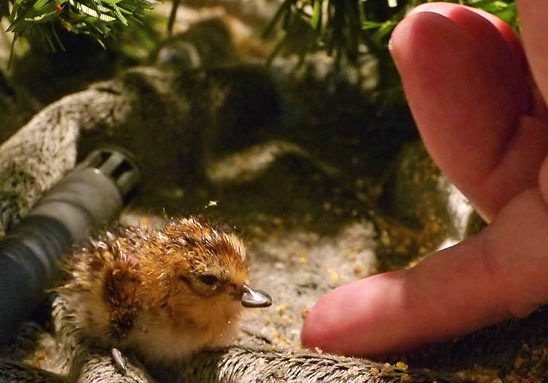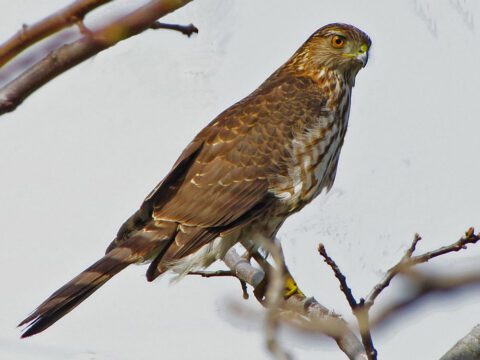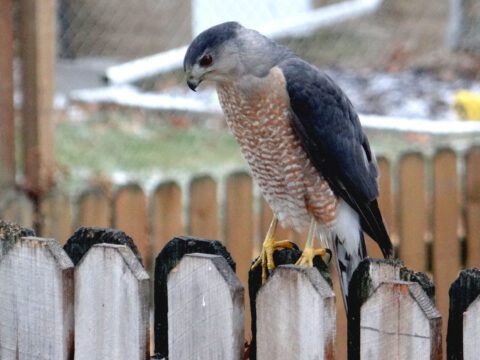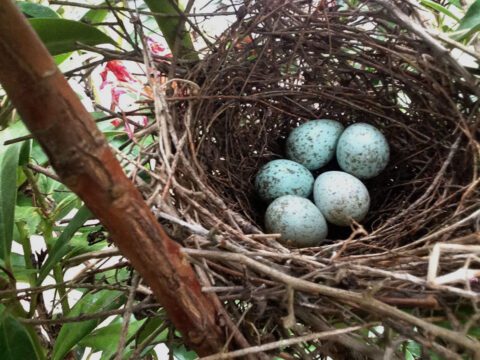Seventeen Spoon-billed Sandpipers hatch in captivity
July 12, 2011
The emergency effort led by Wildfowl and Wetlands Trust to save Spoon-billed Sandpipers got off to a rousing start with a flurry of hatching in the last few days. In all, 17 tiny sandpiper chicks have hatched, right on schedule as the team were transporting eggs from the field site where they have been working since early June, on their way to a captive breeding center in the United Kingdom.
Juvenile survival is a pressing problem contributing to the sharp decline of Spoon-billed Sandpipers, of which fewer than 200 pairs exist. Many eggs are eaten by predators before they can even hatch; and survival of the young birds is so precarious that only about one egg out of 20 survives to become a 2-year-old chick, according to the Wildfowl Wetlands Trust. The goal of this program is to alleviate those losses by taking eggs into captivity, incubating them, and caring for the young.
The hope is to increase the number of Spoon-billed Sandpipers through captive breeding, so that efforts to stem habitat loss and hunting pressure on the wintering grounds have a chance to work. When those problems are resolved, it’s the hope of these scientists that they will have a reserve population of sandpipers in captivity to reintroduce to their native habitat.
The feelings of the team at this crucial early milestone were described in a press release from the Wildfowl and Wetlands Trust:
Incredibly eight of the chicks actually hatched just as the team were preparing to leave Chukotka. Describing his elation on docking safely in Anadyr, WWT’s Head of Conservation Breeding, Nigel Jarrett said: “We boarded the boat with the eight newly hatched chicks, 12 fertile eggs, considerable anxiety about the trip on rough seas and a great deal of hope. We got off the other end with only three eggs, but an amazing 17 chicks and the remaining eggs poised to hatch any day, so I am as happy as happy can be.”
Things have gone as well as could possibly have been hoped for so far, but saving this species is still going to be an uphill battle. A couple of the hatchlings aren’t quite as strong as the others and we will have to accept that we will lose some.
Elizabeth Tambovtseva from Birds Russia is part of the team on the expedition. She said: “The excitement from the team when the first egg hatched and a tiny chick appeared was off the scale – we haven’t slept for days with the stress and worry so it was a pretty emotional experience. All the partners have been working hard as a team to pull off this very important stage of the mission and it’s paid off. I didn’t get a chance to celebrate my birthday last week, but this belated present more than makes up for that!”
The news was covered in the UK by the Guardian newspaper and the BBC.

All About Birds
is a free resource
Available for everyone,
funded by donors like you
American Kestrel by Blair Dudeck / Macaulay Library



